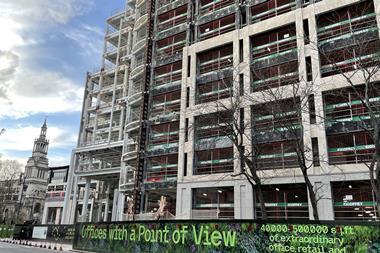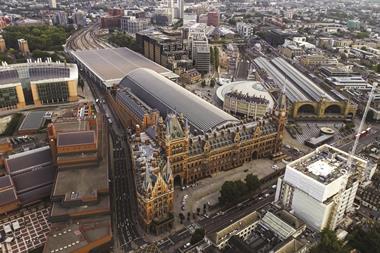We will soon find out what the new normal looks like for retail when non-essential retail – or what’s left of it – reopens on 12 April.

It ain’t gonna look pretty. According to the latest data from the Local Data Company (LDC), the number of retail chain stores fell by 4.5% or almost 10,000 units in 2020. More household names have fallen by the wayside since, with John Lewis announcing just this week that it will not reopen eight of its stores when lockdown ends.
These sorts of numbers are worrying enough in good times, but the high street has not seen those for a while now. Indeed, you could describe Covid as the fourth horseman of the retail apocalypse after online shopping, out-of-town retail and the demise of industries such as shipbuilding, coal mining and car production.
Freeman knows a bit about regeneration. As co-founder of Argent, he was behind one of the biggest regeneration projects around, King’s Cross. But the landscape is far more challenging now than it was then. We’re not just talking about changing shopping habits in 2021, we’re talking about changing lifestyles. With five-days-a-week spent in the office now seemingly a thing of the past, the question is: what impact will the mass shift to homeworking have?
Public-private partnerships will be key, says Freeman predictably. Rather less predictably, he thinks that unlike the previous three horsemen of the retail apocalypse, Covid may give provincial towns and cities a new lease of life as people work, rest and play more locally. The poacher turned gamekeeper even remains bullish about the department store. “I suspect lots of department stores will be converted into nice touchdown business centres,” he says. “The ability to work at home, but not actually to work all the time in your own home because of children, dogs or whatever, will mean there is a real opportunity for touchdown work in a town centre.”
Freeman is not the only one who thinks department stores have a future, albeit not as department stores. We asked eight leading architects to share their visions of how they would repurpose all that redundant department store space. Some of their concepts are jaw-droppingly inventive. Almost all focus on the importance of community, with mindful rather than mindless consumption the order of the day. Retail not so much, but if the days are numbered for retail on a department store scale, at the other end of the size spectrum, there is still hope. The LDC data reveals that the independent retail and leisure market shrank by just 0.4% in 2020 as fast-food takeaways and grocers gobbled up almost as many units as were vacated.
It seems that while big operators such as Time Out Market are struggling, smaller independent operators and opportunist international retailers are waiting patiently in the wings to nab any space that becomes available.
So, do not be too surprised if on 12 April your local high street is still a retail wasteland – or if, come the summer, as all the new outfits fling open their doors, you find yourself abandoning your laptop and indulging in some proper retail therapy again, at the shops. After all, you’ll need somewhere to spend all that foreign holiday dosh.






























No comments yet